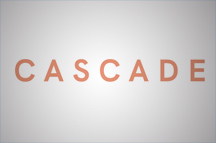Boris Johnson has, historically, been the Conservative Party’s secret weapon during elections and especially in London. However, with borough-wide elections careering towards us he faces a sizeable challenge if the latest polls are to be taken at face value. Chatter on social media is that there is an ever-increasing opportunity for perceived marginal boroughs including Wandsworth and Barnet to turn Labour in May. The story isn’t as simple as this and whilst Labour look to currently have an advantage, there is more to the local elections than meets the eye.
On Monday 10 January polling experts YouGov released a poll with yet another Labour lead, confirming that the government is still suffering from toxic revelations of Christmas Parties at the height of lockdown, covid fatigue and lasting damage over the Owen Paterson affair. The poll showed Labour is enjoying a 4-point lead (37%, +1) against the Conservatives (33%, +3) and Keir Starmer remains a more popular choice of Prime Minister than Boris Johnson by 33% to 28%. This lead has been consistent for some months now, including the crucial Christmas period when families traditionally gather and talk amongst themselves.
London is a special case for Labour, often outperforming other parts of the country. That shows why according to YouGov 49% of the voting intention will be going their way. With the confusion around the levelling up agenda and the TfL funding debate still raging, there is a lot for the Conservatives to be concerned about.
However, amongst Labour councillors and campaigners, many consider 2018 to have been a very high watermark for the party in London. For this reason, Labour is approaching the local elections with a dose of caution. For one, boundary review changes across London Councils have made results harder to predict.
Wandsworth
Wandsworth is a case in point. There is much speculation surrounding political change here. The considerable boundary changes here should, in theory, reinforce the Conservative’s control of the borough. However, while the Conservatives seem to have united following their disquiet, the recent change in leadership to the opposition Labour Group suggests that there is some internal planning to do if an effective campaign to take control of the council is to succeed. Just as we saw with the election result in Putney, the only Labour gain at the last General Election, the national picture can have an impact - in that case, it was Brexit, in this case, it may be a question of satisfaction with the current government. This race is more complicated than either the gossip or the polls suggest.
Barnet
Barnet, another marginal where Labour would hope to take control, is still acutely affected by the legacy of antisemitism in Jeremy Corbyn’s Labour Party. Whilst Keir Starmer has made progress tackling the issue, many campaigners acknowledge there is more to do in repairing relationships with the borough’s Jewish community.
Croydon
In Croydon, the Labour council was forced to issue a Section 114 notice (an admission that the council cannot balance its budget) following substantial financial shortcomings. Subsequently, local residents voted to adopt a mayoral model in the style of Tower Hamlets and Newham. The race between Labour’s candidate, former Deputy Mayor for Transport Val Shawcross, and Tory Group Leader, Councillor Jason Perry, will be tight and may even throw up a Conservative Mayor with a Labour-controlled council.
Westminster
Conservative pollster Lord Hayward raised the unlikely prospects of a Labour-controlled council in Westminster. Whilst this is not entirely outside the realms of possibility, Labour councillors will be quick to manage expectations of taking this established Conservative stronghold.
Tower Hamlets
Another race that could spell trouble for Labour is in Tower Hamlets. This however will have very little to do with Boris Johnson and a lot to do with the return of former Mayor Lutfur Rahman. Following the sad death of Councillor John Pierce in Weavers ward, Rahman’s local party Aspire were successful in taking the seat. Whilst Labour campaigners are confident of holding the mayoralty, it is by no means assured.
Sutton
The Conservatives are concentrating on very local issues in an attempt to unseat the Lib Dems in Sutton after 32 years, having taken both of the parliamentary seats and reduced their council majority in 2018. A win here would be a big boost to the Conservatives, however, with no Labour councillors in Sutton, any backlash against Tory woes in Downing Street will help the Lib Dems hold on to power. It did buck the trend at the last election, returning a pro-EU party council in a leave area in 2018.
Boroughs to watch
There are many other authorities where results are far from obvious, Harrow remains very marginal and in Kingston rumours of leadership squabbles show no sign of abating anytime soon for the Liberal Democrats.
Labour’s Candidates
Another factor, the effects of which are still unclear, is the changing nature of Labour’s candidate base. Following the change in party leadership, many Labour Councils have gone to significant lengths to remove Corbyn supporting councillors from their ranks. Whether this helps convince voters that Labour has moved on from Corbyn will remain uncertain up until election day.
What is clear is that a number of long-serving councillors have taken the opportunity to announce they are standing down. Labour members who considered stepping down in 2018 but forestalled their departures to block Corbynistas will now take the opportunity to vacate their seats – particularly if boundary changes mean all sitting councillors are facing reselection. This will mean changes to Cabinet appointments and to planning committees across London.
In Summary
All of this is to say that the national polls tell us one story about the government in a state of unpopularity. However, hyper-local circumstances will be critically important, perhaps more so than ever, when understanding the impact of Boris Johnson’s current popularity woes.
by Joe Wright, Client Director












